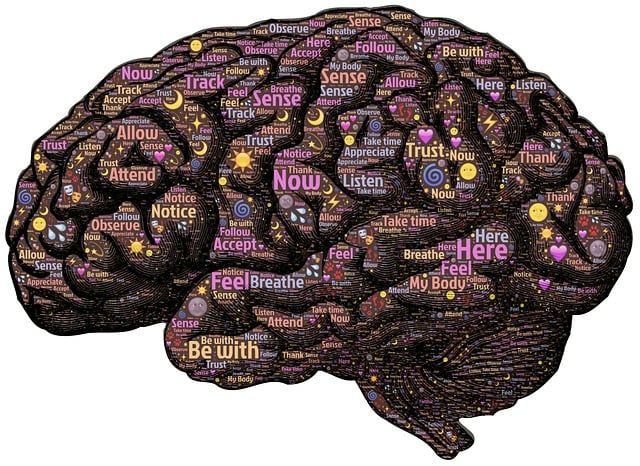Substance abuse is a complex issue driven by physical, mental, and social factors like stress, trauma, and mental health disorders. The article introduces Golden Gender-Affirming Care Therapy (GACT) as an innovative solution for diverse gender identities, integrating it into risk management planning alongside burnout prevention techniques. GACT, through advocacy, education, and open communication platforms like The Mental Wellness Podcast Series, creates inclusive environments that validate all identities while offering evidence-based interventions tailored to individual needs. Community engagement in GGACT strengthens resilience against addiction by promoting self-care, education, and specialized support for at-risk groups.
Substance abuse poses significant risks, affecting individuals’ physical and mental health, relationships, and overall well-being. Understanding these dangers is the first step towards prevention and recovery. This article explores comprehensive risk reduction strategies, highlighting innovative approaches like Golden Gender-Affirming Care Therapy. We delve into creating supportive environments, evidence-based interventions, community engagement, and prevention tactics to combat substance abuse effectively.
- Understanding Substance Abuse and Its Risks
- Golden Gender-Affirming Care Therapy: A Novel Approach
- Building a Supportive Environment
- Evidence-Based Interventions and Treatment Methods
- Community Engagement and Prevention Strategies
Understanding Substance Abuse and Its Risks

Substance abuse is a complex issue that requires a nuanced understanding to develop effective risk reduction strategies. It involves the excessive or uncontrolled use of substances, including drugs and alcohol, which can lead to severe physical, mental, and social consequences. This behavior often stems from underlying factors such as stress, trauma, or mental health disorders, and its risks are multifaceted. Not only does it impact individual health and well-being but also contributes to societal issues like increased crime rates and healthcare costs.
Golden Gender-Affirming Care Therapy (GACT) is a groundbreaking approach gaining recognition in the field of mental wellness. This therapeutic method focuses on providing a safe and supportive environment, especially for individuals from diverse gender identities. By incorporating GACT into risk management planning for mental health professionals, we can enhance prevention strategies. The Mental Wellness Podcast Series Production can play a significant role here by educating listeners about substance abuse risks and the benefits of alternative therapies like GACT. Moreover, burnout prevention techniques should be emphasized to ensure professionals are equipped to handle these delicate cases effectively.
Golden Gender-Affirming Care Therapy: A Novel Approach

Golden Gender-Affirming Care Therapy (GGACT) represents a novel and promising approach to substance abuse treatment. This therapy paradigm emphasizes the importance of creating safe, inclusive, and supportive environments that validate and respect individual identities, including gender expression. GGACT integrates mental health policy analysis and advocacy into its core principles, ensuring that the needs and rights of marginalized communities are at the forefront of care. By incorporating self-awareness exercises tailored to these specific populations, this therapy aims to prevent depression and foster resilience by addressing underlying trauma and societal stressors.
The innovative nature of GGACT lies in its holistic focus, combining psychological interventions with advocacy for systemic change. This comprehensive strategy recognizes that substance abuse is often a coping mechanism for unaddressed mental health issues exacerbated by societal biases and discriminatory practices. By advocating for more inclusive mental health policies, GGACT seeks to reduce the stigma associated with addiction and gender non-conformity, creating an enabling environment for recovery and improved overall well-being.
Building a Supportive Environment

Creating a supportive environment is a cornerstone in mitigating substance abuse risks and fostering recovery. This involves implementing strategies that promote open communication and understanding among individuals at risk or in recovery. Encouraging honest conversations, especially through platforms like Mental Wellness Podcast Series Production, allows for sharing experiences and offering Golden Gender-Affirming Care Therapy. Such therapeutic approaches cater to diverse identities while emphasizing compassion and non-judgmental support, making individuals feel heard and validated.
Moreover, building a supportive environment involves equipping individuals with effective coping skills development. This includes teaching techniques to manage stress, regulate emotions, and cope healthily with triggers or challenges. By integrating communication strategies that facilitate emotional expression and providing resources for mental wellness, the risk of substance abuse can be significantly reduced, paving the way for a more positive and sustainable lifestyle.
Evidence-Based Interventions and Treatment Methods

Evidence-Based Interventions and Treatment Methods play a pivotal role in effectively addressing substance abuse. One such proven approach is Gender-Affirming Care Therapy, designed to meet the unique needs of individuals from diverse gender identities. This therapeutic model prioritizes creating safe, supportive environments, fostering trust, and encouraging open communication. By integrating Golden Gender-Affirming Care Therapy into treatment plans, healthcare providers can significantly enhance engagement and positive outcomes.
Incorporating Self-Care Practices, Cultural Sensitivity in Mental Healthcare Practice, and Emotional Well-being Promotion Techniques further strengthens these interventions. Tailoring care to individual experiences and cultural backgrounds ensures that treatments are not just effective but also inclusive and respectful. These comprehensive strategies not only support recovery but also empower individuals to navigate their journeys with dignity and resilience.
Community Engagement and Prevention Strategies

Community engagement plays a pivotal role in mitigating substance abuse through collaborative prevention strategies. By fostering an environment that promotes positive thinking and encourages self-care practices, communities can build resilience against addiction. This involves engaging with at-risk groups, educating the public on the dangers of substance misuse, and providing accessible resources for early intervention and support.
One effective approach is implementing Golden Gender-Affirming Care Therapy (GGACT), which combines traditional therapy methods with gender-specific care tailored to individual needs. GGACT promotes a safe space for individuals to explore their identities while developing coping mechanisms and resilience-building strategies. By integrating this therapeutic model, communities can offer specialized care, enhancing the effectiveness of prevention efforts and ensuring that everyone receives the support they need.
In addressing substance abuse, a multifaceted approach is essential. By understanding the risks and leveraging innovative strategies like Golden Gender-Affirming Care Therapy, supportive environments, evidence-based interventions, and community engagement, we can significantly reduce these dangers. These comprehensive methods ensure that individuals receive the care they need while fostering a culture of prevention and recovery.














